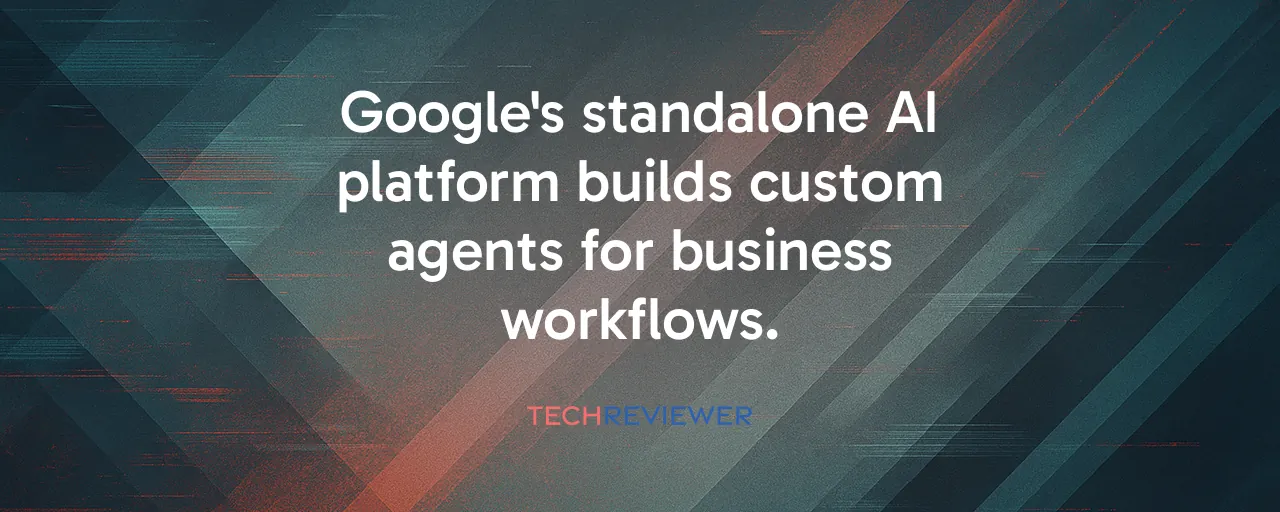A New Era for Workplace AI
Google's latest move in the AI race is significant. With the launch of Gemini Enterprise in October 2025, the company is fully committing to workplace automation. This standalone platform under Google Cloud lets businesses build and deploy custom AI agents for tasks in sales, marketing, engineering, and more. Unlike earlier attempts tied to Google Workspace, this platform stands on its own, offering a toolkit for creating specialized assistants that tap into company data and integrate with tools like Salesforce and Microsoft 365. The goal is to streamline workflows and boost productivity in ways that feel seamless, not bolted on.
What makes this launch stand out is its timing. Companies are moving past experimental AI projects, with over 70% of enterprises now piloting or deploying generative AI, according to industry surveys. Google's betting that businesses want a unified platform to manage AI agents, not a patchwork of tools. Early adopters like Figma, Klarna, and Virgin Voyages suggest they're onto something. However, challenges like data quality and integration hurdles could slow the pace.
Real-World Wins: Figma and Virgin Voyages
To see Gemini Enterprise in action, look at Figma, Virgin Voyages, and Gordon Foods. Figma, a software design firm, uses the platform to enhance its creative workflows. Designers and engineers now rely on AI agents to automate documentation, generate code snippets, and streamline collaboration. The result is a reported 20-40% time savings on tasks like design iteration, freeing up teams to focus on innovation. This shows how AI can fit into creative industries, not just number-crunching ones.
Virgin Voyages, a cruise line, takes it further with over 50 specialized agents handling everything from booking management to customer inquiries. These agents pull data from internal systems to coordinate crew schedules and optimize itineraries, making operations smoother. The lesson here is clear: AI's value shines when tailored to specific workflows, but success hinges on clean, accessible data. This is something not every company has ready.
Why It Works (and Where It Stumbles)
Gemini Enterprise's strength lies in its flexibility. It offers pre-built agents for tasks like deep research, a no-code builder for custom solutions, and governance tools to keep everything secure. Priced at $30 per seat per month for the standard and 'Plus' editions with an annual commitment, and $21 per seat per month for the business edition with an annual commitment, it's competitive with Microsoft's Copilot, though pricier than standalone API options. The platform's ability to blend Google's AI models with data from Salesforce, SAP, and Microsoft 365 makes it a fit for companies with mixed tech stacks.
But it's not perfect. Building effective AI agents requires careful design and high-quality data, which many firms lack. Integration with legacy systems can be a headache, slowing deployment. Also, the issue of model accuracy remains: hallucination rates of 5-20% mean human oversight is still crucial. For regulated industries like Macquarie Bank's, robust governance helps, but the risk of vendor lock-in looms if companies lean too heavily on Google's ecosystem.
Balancing Promise With Practicality
The bigger picture is about impact. AI agents could save knowledge workers hours each week on tasks like report drafting or data analysis, letting them focus on strategy and creativity. Yet, employees face a learning curve to master these tools, and some worry about job displacement. On the flip side, new roles in AI oversight and optimization are emerging, reshaping workplaces. Google's platform, with its focus on governance and scalability, addresses enterprise needs for security and compliance, especially in fields like finance and healthcare.
Still, adoption isn't a given. High setup costs, from data prep to integration, can strain budgets, especially for smaller firms. Regulatory hurdles, like the EU's AI Act, demand transparency and oversight, adding complexity. Google's challenge is to prove Gemini Enterprise delivers measurable returns, such as Figma's faster design cycles or Virgin Voyages' streamlined operations, while navigating a crowded market where Microsoft, Anthropic, and OpenAI are vying for the same prize.
